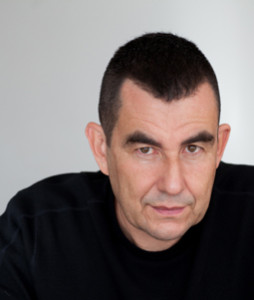Words of the Week
Usually, I use these “words of the week” posts to point you to something I’ve found especially resonant or urgent in the press regarding Israel or another aspect of Jewish life. Almost always, I point you to something that you can read for yourself online.
But this week, I’m doing something different. And here’s why.
Today, January 31, is the anniversary of my paternal grandmother’s death. Typically, I prefer to say Kaddish for her at my home congregation in New Jersey, where she and my grandfather spent so many Sabbaths and holidays and simchas beside us in the pews, where her name is read aloud from the bimah, where I’m surrounded by others who remember her. But last year, and this year, I chose to stay in Manhattan. I went to a nearby temple so I could recite Kaddish there.
Last year, that congregation was expecting a guest speaker for that particular Sabbath evening: Ari Shavit. When I arrived at services, however, I learned that due to a death in his family, Mr. Shavit had had to cut his book tour short and return to Israel. I was disappointed–so much was being made of his book, My Promised Land, and I had looked forward to hearing him speak. But obviously, he had to go home. I didn’t expect that he’d reschedule his visit to the same location for the exact same weekend one year later. But that’s what happened. And so, back at the synagogue to say Kaddish again last evening, I had the opportunity to hear this super-smart journalist and author speak.
He spoke, in large part, about the challenges facing Jews in Israel and here in the U.S. And when I heard him speak about the vast majority of “under-30s” as he has observed them in his travels around the United States (including, on his most recent voyage, visits to eight college campuses), I experienced the same sense of resonance, and urgency, that I so often feel when I’m reading something in print and online.
“We have a decade,” in his judgment, he said, to manage the challenge posed by the young. (He may have said, “We have about a decade”–I admit that this was my first time scribbling notes in services, and something felt vaguely uncomfortable about doing that; I may have erred slightly, but not, I hope, significantly).
It was no surprise to me (hence, the resonance), to hear Ari Shavit describe a huge generation gap in affective ties to Israel here in the United States. No surprise to hear him discern two prevalent phenomena among the youth: 1) apathy and 2) political identifications that deem Israel as anti-liberal, anti-progressive, and therefore something, in essence, to be “anti” themselves. It’s no surprise to me, because I see evidence of this all the time, in the public arena and in the semi-privacy of my extended family.
“We have a decade,” Shavit said, to turn this around. How, I’m still not quite sure. After the service, I had the chance to speak briefly with him at the Oneg Shabbat. So I asked him. (Actually, I said, feeling more middle-aged than I ever have before, “What do we do about these kids?“) On the pulpit, Shavit had argued that we need “a renewed Zionism,” and I concur. He believes further that in this decade, we need to do two things: 1) love ourselves, appreciate our amazing achievements in Israel and in the Jewish Diaspora and 2) have the courage to change, to “fix” Israel and change Jewish life in this country, too, as it may need to be changed. But I’m still not entirely clear as to how, exactly, this will be done. As I told Shavit at the Oneg Shabbat, I’m hoping to read more from him, soon, that suggests a prescription that I can follow.
For me, the biggest challenge is this: How do we show “the young” the errors in their thinking without alienating them further? How do we acknowledge that we hear (and, in more matters than they might suspect, in fact share) their concerns for the continuation and expansion of liberal, democratic ideals in Israel while also helping them understand (and accept) that with age there does come some wisdom, that their elders have in fact seen and experienced things that lend credibility to their pride in Israel and concerns for its security, that it’s not always advisable to trust certain media sources or (sadly) some university teachers and classmates?
For me, that’s the crux of the challenge. And I simply don’t know how to meet it.
Do you?

Hi Erica,
Shavit had to cancel at my temple in CT also; but we didn’t get to have him back. The challenge you speak of at the end of your essay is one that I don’t have answers for either but we’d better get them soon. As long as our press continues to show Palestinian bodies and not equalize it with showing where Hamas was shooting from Jews are going to be thought of as the “bad guys” by Jews and non-Jews. It’s not that simple but it’s a start.
Thanks for writing about it.
Best,
Paul Beckman
Thank you, Paul.